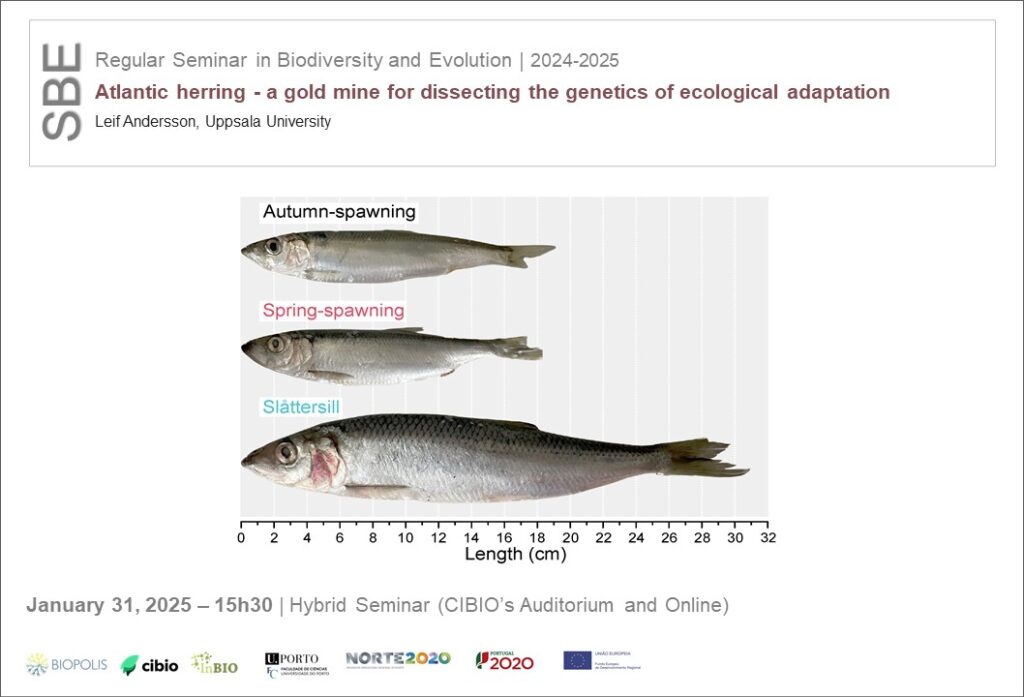
Atlantic herring – a gold mine for dissecting the genetics of ecological adaptation
Leif Andersson, Uppsala University
January 31, 2025 | 15h30 | CIBIO’s Auditorium and Online (https://videoconf-colibri.zoom.us/j/99797933081)
The Atlantic herring is one of most abundant vertebrates on earth and sustains one of the top ten most important marine fisheries in the world. This species has developed into a gold mine for exploring the genetics of ecological adaptation in vertebrates because of the following reasons. Firstly, it is subdivided into many subpopulations/ecotypes adapted to different climate conditions, spawning time, migration and feeding behaviour. Secondly, the huge population size and gene flow between populations essentially eliminate genetic drift even between geographically distant populations. Thus, no sophisticated statistical models are needed to detect loci under selection. Thirdly, the herring deposit sticky eggs on the sea floor or on vegetation which means that the developing embryo is exposed to the environmental conditions at the spawning site. Thus, herring is exposed to much more diverse environmental conditions during the sensitive early stage of development compared with a pelagic spawner, or a bird, or a mammal. Fourthly, the high fecundity leaves plenty of room for natural selection to act. Fifthly, the herring has recently (within the last 8,000 years) adapted to a new environment, the brackish Baltic Sea which is the most extreme environment as regards salinity in which this marine species reproduce. Here, I will present our recent surprising discovery of piscivorous herring in the Baltic Sea (https://www.nature.com/articles/s41467-024-55216-8) and the results of our genetic analysis of >4,000 herring in spawning conditions, sampled at 151 localities along the Swedish Baltic Sea coast. The fish has been genotyped for >4,000 SNPs including the great majority of loci showing strong genetic differentiation among subpopulations. The results provide an unprecedented resolution as regards the population structure in herring.
More information here